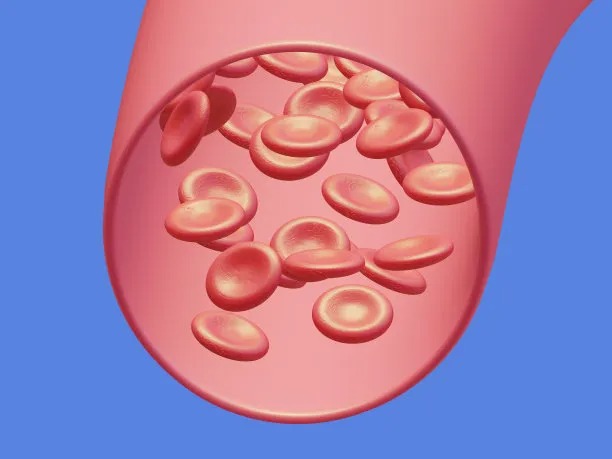Innovative Approaches in International Cardiovascular Disease Treatment
original:health91192025-02-19 11:52:51
Summary: Innovative Approaches in International Cardiovascular Disease Treatment have revolutionized the way heart conditions are managed worldwide, leading to better outcomes and enhanced patient c
Summary: Innovative Approaches in International Cardiovascular Disease Treatment have revolutionized the way heart conditions are managed worldwide, leading to better outcomes and enhanced patient care.
1. Technological Advancements

Technological advancements in cardiovascular disease treatment have played a pivotal role in improving patient outcomes. The development of minimally invasive procedures, such as robotic-assisted surgeries and catheter-based interventions, has reduced risks and recovery times for patients. Additionally, the integration of artificial intelligence and machine learning algorithms in diagnostic tools has enhanced accuracy in detecting heart conditions at an early stage.
Furthermore, the use of telemedicine has enabled healthcare providers to remotely monitor patients with cardiovascular diseases, ensuring timely interventions and personalized care. Wearable devices and mobile health applications have empowered patients to track their heart health in real-time, promoting proactive management of their conditions.
The collaboration between medical device companies and research institutions has resulted in the creation of innovative devices, such as bioresorbable stents and implantable cardiac monitors, which have revolutionized the field of cardiology. These advancements have not only improved patient outcomes but also paved the way for personalized treatment plans tailored to individual patient needs.
2. Pharmacological Innovations
Pharmacological innovations in cardiovascular disease treatment have provided new avenues for managing heart conditions effectively. The development of novel drug therapies, such as PCSK9 inhibitors and novel anticoagulants, has improved the management of dyslipidemia and thrombotic disorders, reducing the risk of cardiovascular events.
The concept of personalized medicine has gained momentum in cardiovascular care, with pharmacogenomic testing allowing healthcare providers to tailor drug therapies based on individual genetic profiles. This approach has led to better treatment outcomes and minimized adverse drug reactions, enhancing patient safety and quality of life.
In addition, the repurposing of existing medications for new indications has expanded the treatment options available for cardiovascular diseases. Drug combinations and targeted therapies have shown promising results in managing complex heart conditions, offering hope for patients with limited treatment options.
3. Lifestyle Interventions
Lifestyle interventions play a crucial role in the holistic management of cardiovascular diseases, complementing medical treatments for better outcomes. Patient education and counseling on healthy lifestyle practices, such as regular exercise, balanced diet, and stress management, have been shown to reduce the risk factors associated with heart diseases.
The integration of telehealth platforms and virtual wellness programs has made it easier for patients to access lifestyle interventions and receive ongoing support from healthcare providers. Remote monitoring tools and digital health coaching have empowered patients to adopt sustainable lifestyle changes, leading to improved heart health and overall well-being.
Community-based interventions, including heart-healthy initiatives and support groups, have fostered a sense of belonging and motivation among patients with cardiovascular diseases. By creating a supportive environment, these interventions have encouraged individuals to make positive lifestyle choices and adhere to their treatment plans, ultimately improving long-term health outcomes.
4. Collaborative Care Models
Collaborative care models have reshaped the delivery of cardiovascular disease treatment, emphasizing multidisciplinary teamwork and patient-centered care. The integration of cardiovascular specialists, primary care physicians, nurses, pharmacists, and allied health professionals in care teams has enhanced care coordination and communication, leading to better treatment outcomes.
Shared decision-making and care planning have become standard practices in cardiovascular care, ensuring that patients are actively involved in their treatment decisions and goals. Patient-centered medical homes and care coordination platforms have facilitated seamless transitions between care settings, promoting continuity of care and reducing healthcare disparities.
The adoption of value-based care models and bundled payment systems has incentivized healthcare providers to focus on quality outcomes and cost-effective care delivery in managing cardiovascular diseases. By aligning financial incentives with patient outcomes, these models have promoted efficiency and accountability in healthcare delivery, driving improvements in the quality of care for patients with heart conditions.

Summary:
Innovative Approaches in International Cardiovascular Disease Treatment have ushered in a new era of precision medicine and patient-centered care, revolutionizing the management of heart conditions globally. With advancements in technology, pharmacology, lifestyle interventions, and collaborative care models, healthcare providers are better equipped to deliver personalized, holistic care to patients with cardiovascular diseases, leading to improved outcomes and enhanced quality of life.
This article is published by HEALTH9119 Medical Health Network https://www.health9199.com arrangement